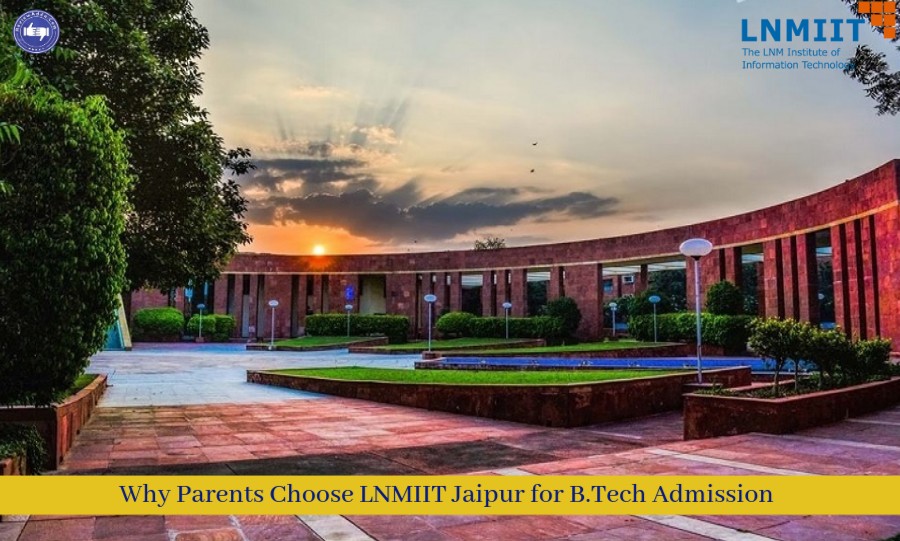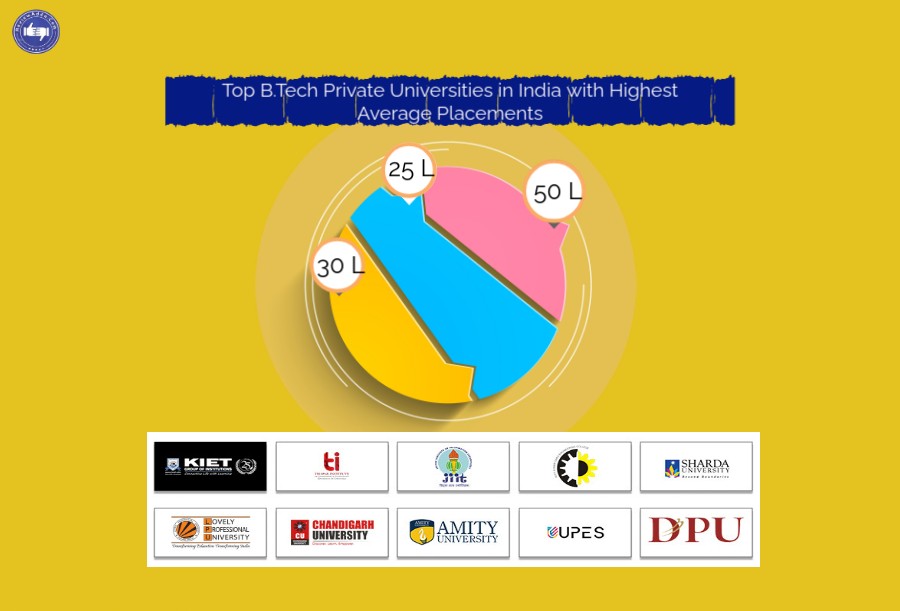Difference between NRI and NRI Sponsored Category for Admission
Admission to educational institutions is a significant milestone in one's academic journey. The admission process can be more complex for students aspiring to study in foreign countries, as they often encounter two distinct categories: NRI (Non-Resident Indian) and NRI Sponsored. Understanding the difference between these categories is crucial for making informed choices regarding admissions.
This blog will explore the distinctions between NRI and NRI-sponsored categories and shed light on the implications for prospective students.
NRI Category
What is the NRI Category?
The "NRI category" refers to a special status or group of people in India. "NRI" is an abbreviation for "Non-Resident Indian." Essentially, it refers to individuals of Indian origin who have chosen to live in a foreign country. This NRI category encompasses people who have relocated to another country for various purposes, such as employment, education, or to be with their family, and have consequently left their former residence in India.
This classification carries significant importance in the realms of legal and financial matters. For instance, it pertains to aspects like property ownership, investments within India, as well as participation in voting and taxation. Being classified as an NRI entails specific rights and obligations, setting individuals apart from those who permanently reside in India. It serves as a means to recognize and cater to the distinct requirements and situations of those who belong to the Indian diaspora but have made their homes overseas.
Eligibility
Regarding education, the NRI category is specifically designed for students with NRI status. To qualify for this category, applicants generally need to meet specific criteria related to their residency status, such as having parents who are NRIs or being NRIs themselves. Eligibility requirements may vary from one educational institution to another, so checking with the respective institution for precise details is essential.
NRI Category:
The candidates who are claiming under the NRI quota shall be satisfying the following:
- Applicant shall be the ward of NRI or NRI citizen by themself.
- The NRI parent shall be
- a) Possessing the status of OCI (Overseas Citizen of India), PIO (Person of Indian Origin), or permanent citizenship.
- b) Employment in abroad/ Business
- c) Shall have an annual income sufficient to support the course of study of
their ward.
NRI Quota Eligibility for Medical Students
- For a student's admission to be considered, they are required to satisfy the eligibility requirements. One of these crucial requirements involves achieving a qualifying score in the NEET exam, which is administered by the National Testing Agency (NTA).
- After successfully passing the NEET exam, the next step for the student is to complete the registration process for counseling with the Karnataka Examinations Authority.
- Admission offers will be made based on merit, which is evaluated using the NEET scores achieved by the applicants.
NRI Quota Eligibility for B tech/ Engineering
- Students seeking NRI admissions for engineering and technology courses at colleges in Karnataka need to successfully pass the relevant entrance examination.
- Colleges recognized by the All India Council for Technical Education (AICTE) reserve a maximum of 5% of seats in each course for the NRI quota.
These were certain guidelines; let’s look at the academic eligibility requirements for NRI Quota in the next few segments.
Admission Process
Admission under the NRI category typically follows a distinct process. Applicants must submit the necessary documents, including proof of NRI status, academic transcripts, standardized test scores, and other application materials as required by the institution. Admissions are often based on merit and available seats designated for NRI students.
Documents required at the time of admission:
- Copy of Valid Indian Passport of the Student
- A duplicate of visas acquired within the past 12 months.
- A certificate issued by the local embassy confirming the individual's status as an NRI, OCI, or possessing a PIO Card.
Quota and Reservation
Many educational institutions reserve a certain percentage of seats for NRI students. The allocation of these reserved seats is in line with the institution's dedication to offering educational opportunities for NRIs in their home nation. It's worth noting that the specific count of reserved seats may differ from one institution to another.
NRI Quota in NITs, IIITs, SPAs & CFTIs
NRI/PIO/OCI Students can be admitted to NITs, IIITs, SPAs & CFTIs (Centrally Funded Technical Institutes) under DASA and CIWG. Let’s check out the state-wise colleges providing NRI Quota in NITs under DASA and the number of seats under the scheme:
|
State |
Colleges |
NRI Quota Seats (DASA) |
|
Andhra Pradesh |
School of Planning & Architecture, Vijayawada |
17 |
|
Arunachal Pradesh |
National Institute of Technology, Arunachal Pradesh |
35 |
|
Assam |
|
12 12 |
|
Bihar |
National Institute of Technology, Patna |
89 |
|
Chattisgarh |
National Institute of Technology, Raipur, Chattisgarh |
28 |
|
Delhi |
|
27 12 88 21 29 |
|
Goa |
National Institute of Technology, Goa |
14 |
|
Gujarat |
|
873 14 108 |
|
Haryana |
|
35 58 19 |
|
Himachal Pradesh |
National Institute of Technology, Hamirpur |
34 |
|
Jammu and Kashmir |
|
53 20 |
|
Jharkhand |
|
25 39 |
|
Karnataka |
National Institute of Technology, Surathkal |
111 |
|
Kerala |
National Institute of Technology, Calicut |
94 |
|
Madhya Pradesh |
|
94 15 12 |
|
Maharashtra |
|
62 9 |
|
Manipur |
National Institute of Technology, Manipur |
27 |
|
Meghalaya |
National Institute of Technology, Meghalaya |
5 |
|
Mizoram |
National Institute of Technology, Mizoram |
23 |
|
Odisha |
National Institute of Technology, Rourkela |
110 |
|
Punjab |
|
77 75 72 20 |
|
Rajasthan |
National Institute of Technology, Jaipur |
55 |
|
Sikkim |
National Institute of Technology, Sikkim |
111 |
|
Tamil Nadu |
|
72 116 9 80 |
|
Telangana |
National Institute of Technology, Warangal |
111 |
|
Tripura |
National Institute of Technology, Agartala |
121 |
|
Uttar Pradesh |
|
123 10 |
|
Uttarakhand |
National Institute of Technology, Uttarakhand |
25 |
|
West Bengal |
National Institute of Technology, Durgapur |
32 |
Scholarships and Financial Aid
Scholarships and financial assistance opportunities for Non-Resident Indian (NRI) students in India may differ depending on factors like the field of study, academic level, and the specific institution. It's crucial to understand that scholarship offerings and eligibility criteria can evolve over time, so it's advisable to confirm the details and deadlines with the relevant scholarship providers. Below is a compilation of some scholarships and financial aid options that have historically been accessible to NRI students in India:
- NRI Student Scholarship by Indian Government: The Indian government, via the Ministry of External Affairs, extends scholarships to NRI students through the Scholarship Programme for Diaspora Children (SPDC). These scholarships are primarily intended for undergraduate studies in India.
- ICCR Scholarship: The Indian Council for Cultural Relations (ICCR) extends scholarships to international students, including NRIs, for a wide range of undergraduate, postgraduate, and doctoral programs at Indian universities.
- Tata Scholarship for NRI Students: The Tata Trusts provide scholarships to deserving Indian students, including NRIs, who are pursuing higher education at the undergraduate level. These scholarships are available for specific courses and institutions.
- SIA Youth Scholarship (Singapore-India): The Singapore-India Youth Scholarship offers financial support to exceptional Indian students, including NRIs, to pursue pre-university courses and undergraduate programs in Singapore.
- L&T Build India Scholarship: Larsen & Toubro (L&T) offers the Build India Scholarship for students pursuing a full-time M.Tech degree in Construction Technology and Management.
- KC Mahindra Scholarships: The KC Mahindra Education Trust offers scholarships to Indian students, including NRIs, for postgraduate studies in various fields, such as engineering, medicine, and management.
- Aditya Birla Group Scholarship: The Aditya Birla Group provides scholarships for Indian students, including NRIs, who are pursuing full-time MBA/PGDM courses from select B-schools in India.
- Tata Housing Scholarships for Meritorious Students: Tata Housing Development Company offers scholarships to outstanding students, including NRIs, who are pursuing undergraduate and postgraduate studies in India.
- O.P. Jindal Engineering and Management Scholarships: The O.P. Jindal Group provides scholarships for engineering and management students in India.
- Ambuja Neotia Scholarship: Ambuja Neotia Group offers scholarships to undergraduate and postgraduate students in various fields.
- Sahu Jain Trust Scholarships: The Sahu Jain Trust awards scholarships to students from diverse backgrounds, including NRIs, who are pursuing higher education in India.
- Ratan Tata Trust Scholarships: The Ratan Tata Trust grants scholarships to Indian students pursuing undergraduate and postgraduate studies in a range of fields, including NRIs.
- Sitaram Jindal Foundation Scholarships: The Sitaram Jindal Foundation offers scholarships to students pursuing various courses in India.
- Sindhi Scholarship by Sindhi Foundation: The Sindhi Foundation provides scholarships to Sindhi students, including NRIs, for pursuing higher education in India.
- Swami Vivekananda Merit-Cum-Means Scholarship: The West Bengal government offers this scholarship to deserving students, including NRIs, who are domiciled in West Bengal.
- Karnataka Minority Scholarship: The Karnataka government provides scholarships to minority students studying in the state, including NRIs.
- Maharashtra State Minority Scholarship: The Maharashtra government offers scholarships to minority community students studying in the state, including NRIs.
Remember to check the eligibility criteria, application deadlines, and specific requirements for each scholarship, as they can vary widely. You can also explore scholarship opportunities provided by individual universities and colleges in India.
NRI Sponsored Category
What is NRI Sponsored Category?
The "NRI-sponsored category" refers to a specific group of students or individuals supported or sponsored by Non-Resident Indians (NRIs) to pursue education or certain activities in India. These students or individuals might be Indian citizens. Still, they have an NRI relative or sponsor who helps with their finances and other support while studying or participating in specific programs in India.
For example, if an NRI sponsors their relative's education in India, that relative falls into the "NRI sponsored category." This category is essential for educational institutions and other organizations to recognize the source of support and, in some cases, might have different admission or eligibility criteria. It's a way to ensure that NRIs can effectively support their loved ones' endeavors in India.
Points to Consider:
- Amongst the colleges mentioned above, 15% of the seats are reserved for NRIs/PIOs/OCIs & FN candidates under the DASA Quota.
- NRI Students from the Gulf can apply under the CIWG Scheme (Children of Indian Worker in Gulf), for which 5% of seats are reserved for them (i.e., 1/3rd of DASA seats)
- CIWG candidates must pay much fewer fees than non-Gulf NRIs applying under the DASA Quota. (While a CIWG applicant pays INR 6 lakhs for their undergraduate course, a DASA candidate pays INR 22 lakhs for the identical program.)
- The competition under these schemes is pretty hard.
- From the session 2021-22, the DASA scheme will admit students on the basis of JEE Main scores before the registration deadline. Please submit JEE Main scores in time to avoid non-attending the first 3 rounds of counseling for admissions, resulting in a missed opportunity to onboard your prospective colleges.
- Starting from the academic year 2021-22, a JEE Main Rank is a prerequisite for DASA/CIWG applications, replacing the need for SAT scores.
Eligibility
The NRI-sponsored category is distinct from the NRI category and caters to different students. Applicants usually need a close relative who is an NRI, such as a parent, guardian, or sibling, to be eligible under this category to sponsor their education in India. The sponsoring NRI takes on specific financial responsibilities for the student's education.
NRI sponsored category:
NRI-sponsored applicants will be taken into account provided they meet the following requirements:
- Affidavit of the person who is NRI and the sponsor.
- Documents claiming that the sponsorer is an NRI (Passport, Visa of the sponsored)
- Relationship of NRI with the candidate per the court orders of The Hon’ble Supreme Court of India.
The relationship of NRI with the candidate should comply with the following conditions:
- a) He should be the nearest relation
- b) Definition of the nearest relation, the following relative having blood relations.
- Real brother and sister of father, i.e., real uncle and real aunt.
- Real brother and sister of mother, i.e., maternal uncle and maternal aunt.
iii. Father and mother of mother, i.e., maternal grandfather and maternal grandmother.
- Father and mother of mother, i.e., maternal grandfather and maternal grandmother.
- First-degree degree-paternal and maternal cousins.
- Such a person should be NRI.
- c) Such persons should ordinarily be residing abroad.
- d) Such a person should have looked after such student as the student's guardian, and
evidence to that effect must have been produced before the committee by such
person.
- Affidavit from the sponsorer that they will sponsor the entire course fee of the candidate.
- Embassy Certificate of the Sponsorer.
Admission Process
Admissions for NRI-sponsored students follow a separate process. In addition to academic qualifications and other application requirements, these students must also provide documentation related to the sponsoring NRI's financial capacity and willingness to fund the student's education.
Documents required at the time of admission:
- Copy of Valid Indian Passport of the Sponsor
- Copy of Visas obtained in the last 12 months by the Sponsor
- Certificate from the local embassy stating that the Sponsor is a NRI/ OCI or PIO Card
- An affidavit by the sponsor indicates the interest shown in the education affairs of the student and willingness to fund the student's education over the next 5 years.
Quota and Reservation
Similar to the NRI category, some institutions reserve seats for NRI-sponsored students. These reserved seats are often limited in number and may vary depending on the institution's policies.
Financial Responsibility
Scholarships and financial aid options for NRI-sponsored students in India can vary based on factors such as the course of study, level of education, and the institution. These scholarships are typically for students sponsored by an NRI (Non-Resident Indian). Verifying the details and deadlines with the respective scholarship providers is essential, as scholarship availability and criteria may change over time. Here is a list of some scholarships and financial aid options for NRI-sponsored students in India:
- NRI Quota Scholarships: Many universities and colleges in India offer NRI quota seats for students sponsored by NRIs. These seats may have different fee structures and eligibility criteria.
- ICCR Scholarship: The Indian Council for Cultural Relations (ICCR) offers scholarships to international students, including those sponsored by NRIs, for various undergraduate, postgraduate, and doctoral programs in Indian universities.
- NRI Sponsored Merit Scholarship by Indian Government: The Indian government provides scholarships for NRI-sponsored students under the Scholarship Programme for Diaspora Children (SPDC). This scholarship is primarily for undergraduate studies in India.
- NRI Children's Merit Scholarship by NRI Sabha: The NRI Sabha, an organization representing NRIs, offers scholarships to the children of NRIs for higher education in India.
- KC Mahindra Scholarships for Postgraduate Studies: The KC Mahindra Education Trust offers scholarships for Indian students, including those sponsored by NRIs, pursuing postgraduate studies in various fields.
- Tata Trusts Scholarships for NRI-Sponsored Students: Tata Trusts provides scholarships for NRI-sponsored students pursuing undergraduate and postgraduate studies in select fields and institutions.
- Aditya Birla Group Scholarships for NRI-Sponsored MBA Students: The Aditya Birla Group offers scholarships to students sponsored by NRIs pursuing full-time MBA/PGDM courses from select B-schools in India.
- Sahu Jain Trust Scholarships: The Sahu Jain Trust offers scholarships to students from all communities, including those sponsored by NRIs, pursuing higher education in India.
- Ratan Tata Trust Scholarships for NRI-Sponsored Students: The Ratan Tata Trust offers scholarships for Indian students, including those sponsored by NRIs, pursuing undergraduate and postgraduate studies in various fields.
- O.P. Jindal Engineering and Management Scholarships for NRI-Sponsored Students: The O.P. Jindal Group provides scholarships for students sponsored by NRIs pursuing engineering and management courses in India.
- Sitaram Jindal Foundation Scholarships: The Sitaram Jindal Foundation offers scholarships to students sponsored by NRIs pursuing various courses in India.
- Ambuja Neotia Scholarship for NRI-Sponsored Students: Ambuja Neotia Group offers scholarships to students sponsored by NRIs pursuing undergraduate and postgraduate programs in various fields.
- Maharashtra State Minority Scholarship: The Maharashtra government offers scholarships to minority community students studying in the state, including those sponsored by NRIs.
- Karnataka Minority Scholarship: The Karnataka government provides scholarships to minority students studying in the state, including those sponsored by NRIs.
- Swami Vivekananda Merit-Cum-Means Scholarship: The West Bengal government offers this scholarship to deserving students, including those sponsored by NRIs who are domiciled in West Bengal.
These scholarships and financial aid options can help NRI-sponsored students pursue their higher education in India. Ensure you thoroughly research each scholarship's eligibility criteria and application process to increase your chances of receiving financial assistance.
Differences and Considerations
Now that we've explored the specifics of both categories let's compare them in terms of various aspects and considerations.
Admission Criteria Comparison
- The NRI category primarily relies on the NRI status of the applicant, while the NRI Sponsored category depends on the sponsorship by an NRI relative.
Financial Implications
- NRI students may have access to scholarships and financial aid, potentially reducing the financial burden on their families.
- NRI Sponsored students must rely on their sponsoring NRIs for financial support, making financial planning and arrangements crucial.
Residency and Citizenship
- NRI students have NRI status, whereas NRI-sponsored students may not hold NRI status; instead, their sponsor is the NRI.
Documentation and Verification
- NRI students must provide proof of their NRI status, academic records, and other standard application materials.
- NRI Sponsored students must furnish documents demonstrating their sponsorship, including financial guarantees from the sponsoring NRI.
List of Enclosures to be submitted with application under NRI/ NRI Sponsored Quota
The candidates for admission into this course are required to submit the
following enclosures
(i) An undertaking by the candidate and parent (ANNEXURE-I)
(ii) An undertaking by the sponsor on stamp paper (Rs. 200/- INR or equivalent
currency in the sponsorers country) duly notarized (ANNEXURE-II)
Certificates/Documents (Attested Photocopies only)
1) Pass Certificate cum Memorandum of Marks / Grades obtained by the
candidates in the qualifying examination (Intermediate / 12th class or its
equivalent)
2) SSLC SSC or HSC certificate, showing the evidence of the Date of Birth.
3) Bonafide / Study Certificates for VI to Intermediate/XII Class.
4) Bonafide/Conduct Certificate issued by the Head of the Institution last attended
5) Transfer Certificate/Migration Certificate issued by the Head of the
Institute/University last attended (whichever is applicable)
6) Medical Fitness Certificate
7) Self-certification documents of the sponsorer showing the proof of NRI status, work
permit, business establishment, valid visa along with the bank statement showing
the latest transaction of the previous 6 months.
Tips and Advice
When considering admission under either category, here are some practical tips to keep in mind:
Choosing the Right Category: Carefully evaluate your eligibility and financial situation to determine which category aligns better with your circumstances.
Preparing for Admission: Ensure you meet all academic and application requirements, including the specific documentation needed for your chosen category.
Navigating the Admission Process: Seek guidance from educational consultants or admission counselors who specialize in helping NRI and NRI-sponsored students.
Conclusion
In conclusion, the distinction between the NRI and NRI-sponsored categories for admissions in educational institutions is crucial for prospective students and their families. Understanding the eligibility criteria, admission processes, financial implications, and responsibilities associated with each category can help students make well-informed decisions. Whether you are an NRI or have a sponsoring NRI relative, the right category choice can significantly impact your educational journey in India.




.jpg)